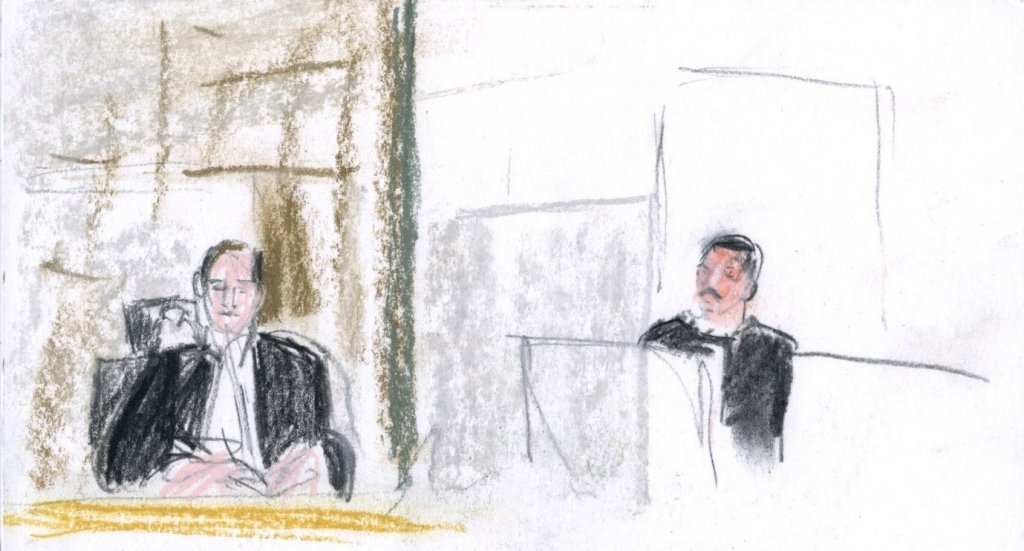Counter-terrorism measures are characterized by pre-emptive logics: suspicious behavior must be detected and captured before it materializes into terrorist attacks. Terrorist networks need to be mapped and surveilled to prevent the moving of funds or weapons. Through increased regulations, these pre-emptive dynamics increasingly find their ways to the domestic judicial systems in Europe.

Court sketch, December 2020, The Netherlands. Sketched by Machteld Aardse
One concrete example is the criminalization and prosecution of terrorism financing. To anticipate the funding of terrorist attacks, the financial sector and law enforcement have an obligation to monitor and disrupt financial transactions that may facilitate terrorist activities. Those who engage in funding terrorist organizations or individuals, commit a criminal offence, even if the money was not intended to facilitate violence or terrorist operations. Even in the absence of a concrete plan to fund terrorism, individuals can be convicted of terrorism financing if they should have known that the money might be used for terrorist activities.
‘[S]tudying temporalities can help unpack other imaginations, arguments and objects of violence that challenge the dominant pre-emptive focus of counterterrorism financing regulations’
In this recent Security Dialogue article (Open Access) I examined how time and pre-emptive constructions of future terrorist violence are defined and contested in court cases. I argue that temporality becomes a key practice for both legal and security decisions in prosecuting financial behavior as terrorist violence. Rather than accepting the two temporalities as incompatible, I examined how terrorism financing court cases became important sites where law and security together produce new definitions of future terrorist threat that are very narrow and set low standards for conviction. Yet, inspired by post-colonial contributions on temporality and governance, I propose that this is not the full story. By unraveling the multiplicity of temporal claims that precede a court judgment, we find a variety of reconstructions of events and imaginations of potential future terrorist threat. For example, we can see how parents sent money to support their children who regret their decision to join a terrorist organization and wish to return. We hear the appeals of defendants who fear the grave repercussions of being a convicted terrorist offender for a one-time transaction. These definitions of violence and temporal claims, however, are often left out while narratives of a daunting future terrorist attack dominate the court room discussions. With this article, I showed that studying temporalities can help unpack other imaginations, arguments and objects of violence that challenge the dominant pre-emptive focus of counterterrorism financing regulations.
While pre-emptive and speed are considered key-features of counter-terrorism measures, legal proceedings are often described in very different temporal frames. Laws cannot be retroactively applied to crimes and legal terms restrict the times in which actions can be taken. Legal evidence should prove a past action beyond the shadow of a doubt, and is only accepted after careful consideration. Furthermore, court cases are held at a specific time and date, and even though legal proceedings should be finished within a reasonable time, they can take a very long time. At first glance, this slow and backward-looking feature of law does not sit well with the security objective to anticipate and prevent a potential terrorist future. Bringing pre-emptive counter-terrorism financing cases before a court, therefore raises tensions on how to reconcile these very different legal and security temporalities.